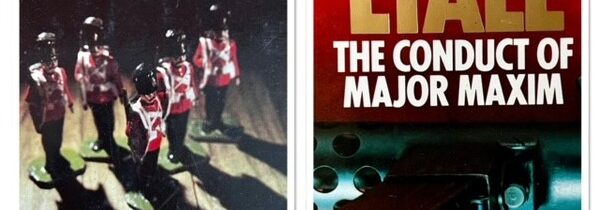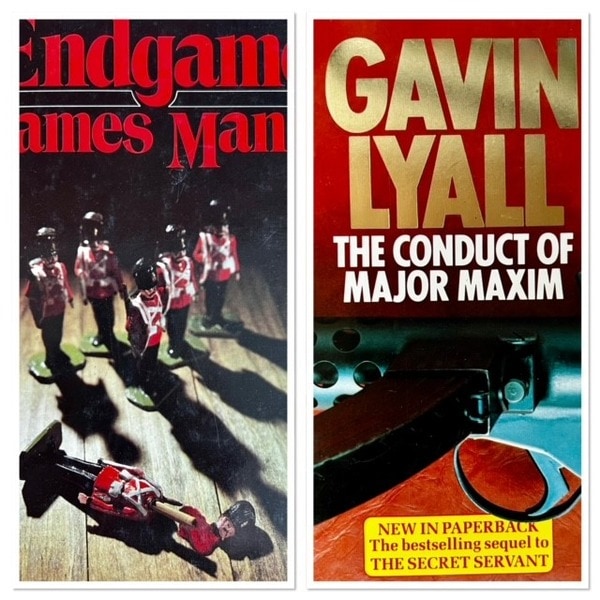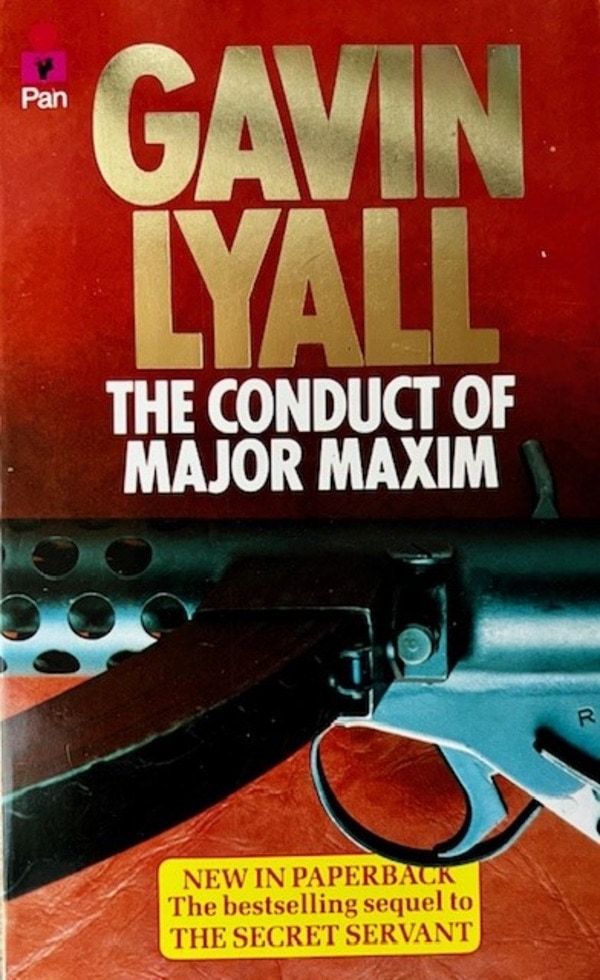FORGOTTEN THRILLERS BY JAMES MANN AND GAVIN LYALL
I have been enjoying working my way through old thrillers that I have collected over the years, and seeing how well they have held up, and whether they are as good as I remembered them.
The contemporary nature of spy thrillers means that they are particularly subject to the ravages of time and often do not age well due to shifts in the geo-political environment and changes in reader’s expectations. However, despite the dated nature of the politics and the plots, these two books from 1982 have both retained their appeal and are as good, if not better, than I recall.
Endgame by James Mann came out in 1982 and I reviewed it for the Canberra Times, although I have since lost the review. I did note at the time, however, that it was a “A very good, tough spy thriller.” A view that I still hold after reading it again recently.
What I did not know in 1982, was that James Mann was actually the pseudonym for British wordsmith John Harvey, who wrote across a variety of genres, including westerns and war thrillers, before finding critical success with his Charlie Resnick police series in the 1990s. I think that Endgame was his only attempt at a stand-alone international spy novel, which is a shame as it is quite good, if somewhat derivative.
Typical of early 1980s spy fiction, Endgame has an intricate plot, including flashbacks and multiple viewpoints, and revolves around a CIA plan to assist the defection of a Russian neurologist, Dimitri Andropov, who has vital insights into the KGB’s personnel and programs. The CIA also hope that Andropov can provide details on a Soviet assassin who has been causing havoc by killing some of their key assets. To provide the extra incentive for him to defect, the CIA use an American female scientist with whom he had a brief, passionate affair many years ago at a conference in Norway. Meanwhile in the background, the Head of KGB’s Counter Intelligence watches and waits for the Americans to make their move. At his disposal is the assassin that the Americans are so keen to capture.
It takes awhile for Mann to put this complex plot and largish cast of characters in place, but the reader is kept entertained as we watch the assassin go about his business with dispassionate ease. Once the plans and counter plans for the defection are settled, the story moves at a quicker pace leading to bloodshed in America and an exciting, and well staged, climax in the frozen north of Norway.
Along the way to the bloody conclusion there are the sort of things you would expect in a 1980s spy novel: betrayals, cold blooded intelligence bosses, inter-service rivalry, gunfire and a clever twist towards the end. There are also references to toy soldiers, which, thanks to the success of Callan, were not an infrequent feature in popular spy fiction at the time.
On the negative side, the writing is flat and dispassionate, and lacks the engagement and flair of modern novels, and the characters are not fully fleshed out. The complexity of the plotting and counterplotting also probably stretches credibility, but it does come together nicely in a tough, cynical manner.
Overall, I was thoroughly entertained, and at just over 250 pages Endgame is a relatively quick read compared to most modern spy novels. Well worth tracking down!
I think that there is a general view that Gavin Lyall’s best work is to be found in the stand-alone adventure thrillers that he wrote in the 1960s and 1970s, culminating in 1975’s Judas Country. His subsequent spy thrillers, particularly the four books making up the Major Maxim series, are less fondly remembered.
This was certainly my view, but in re-reading Gavin Lyall’s books I found that the Major Maxim adventures are actually quite good, especially the second one, The Conduct Of Major Maxim (Hodder & Stoughton,1982).
Major Harry Maxim is an SAS officer who is assigned as a security adviser to 10 Downing Street following the death of his wife by a terrorist bomb. Maxim’s role is not very clear, but a crisis involving the Prime Minister’s new nuclear policy adviser, a Czech defector, Eastern bloc hit men and the possibility of a mole in MI5 keeps him busy in the first book, The Secret Servant.
In The Conduct Of Major Maxim, the good major is still at Downing Street and finds himself involved in the search for a British army deserter, fresh from shooting a German registrar of births and deaths on the other side of the Berlin Wall. The soldier was apparently working for a British Intelligence operative at the time, a fact which now seems to have been forgotten by the Intelligence Services. In no time Maxim finds himself dodging a foreign hit team, dealing aggressively with agents from his own side and trying to work out what the agent and the soldier were doing in a small town in Germany.
The Conduct Of Major Maxim probably moves at a quicker pace than The Secret Servant and it is actually fueled by a very good, and credible, spy plot involving old secrets from the end of World War II. Lyall fleshes Maxim out a bit more in this book and he is well supported by nicely described supporting characters in the form of the PM’s Private Secretary George Harbinger, MI5 agent Agnes Algar and Maxim’s old army mate Jim Caswell. There are plenty of twists and suspense, and the book builds to strong and exciting climax, that manages to be both cynical and poignant. There is also good dialogue, and some wry and astute observations by Maxim and Harbinger on a range of things.
What surprised me the most about the book, the details of which I had not remembered, was the strength of the espionage plot, which was understated, but quite clever and believable.
Maxim’s adventures continued in The Crocus List and Uncle Target, both of which are quite good, but for me The Conduct Of Major Maxim is the best of them.
So, perhaps it is time to put aside some old prejudices and give the Major Maxim books another go!
Incidentally, prior to writing The Servant Secret, Lyall helped to further the interest in toy soldiers by co-authoring an interesting book on miniature wargames with his son: Operation Warboard: How to Fight World War II Battles in Miniature (1976) by Gavin and Bernard Lyall.




